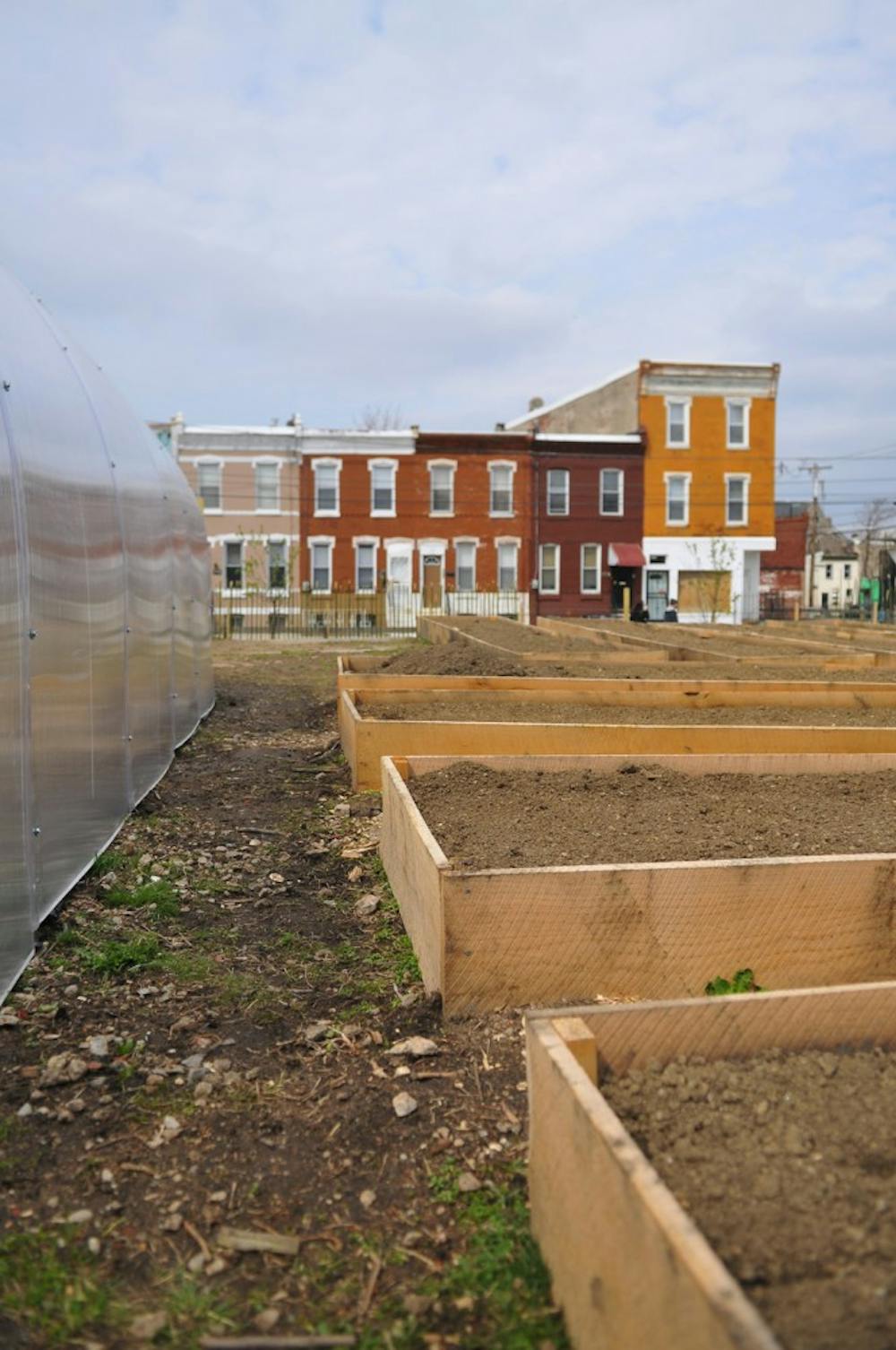
City and country are no longer mutually exclusive thanks to Philadelphia’s newest attraction — farms.
Multiple groups have brought urban farms to areas of Philadelphia to provide widespread accessibility to fresh food.
Marathon Restaurants — a Philadelphia chain with six locations, including 200 South 40th St. — recently acquired 15,750 square feet of land at the corner of Master and 27th streets. The formerly vacant urban spot in North Philadelphia’s Brewerytown neighborhood has been transformed into “Marathon Farm.”
According to a statement from Marathon, “as part of the urban agriculture movement, which involves cultivating, processing and distributing food in or around a city, Marathon Farm will serve as a much-needed link between the local community and fresh, just-picked food.”
The farm’s opening day was held on March 21 with a press conference led by Philadelphia Mayor Michael Nutter.
Marathon Grill’s owner Cary Borish and farm director Patrick Dunn are currently working to establish a nonprofit organization, The Marathon Loves Philadelphia Foundation, to support their efforts.
“Our motto has always been ‘serving the neighborhood,’ and with our new farming initiative, we’re making it literal,” Borish said in the statement. “This garden is more than just a means of supplying our restaurants with terrific fruit and vegetables; we will offer half of what we grow at an affordable farm stand on site and to a local food cupboard.”
Farm manager Adam Hill explained that, for the residents of Brewerytown, there is no option to receive fresh vegetables. “There’s not a grocery store near here,” he explained.
Hill said he hopes to establish outreach programs with the surrounding elementary and middle schools and to bring fresh produce to the elderly and handicapped in the area. “It’s a great location for involving people, it’s a community farm,” he said.
Marathon Farm chief engineer Michael Parnell noted the obstacles he and Hill endured, given the urban location of the farm. “We’ve had to do raised beds to protect the soil from the lead in the city soil,” he said.
Dunn’s plan for the farm includes a small orchard, as well as raised beds for herbs, berries, tomatoes, carrots, spinach, zucchini, squash and other vegetables, according to the statement.
The Triscuit Home Farming Movement — which teamed with nonprofit Urban Farming to plant 50 community farms nationwide last year, including one at 401 South 42nd St. — also aims to increase access to fresh vegetables in urban environments.
Urban Farming executive director and founder Taja Sevelle explained that the “mission of Urban Farming is to create an abundance of food on unused land and space and help uplift communities.”
To help farmers connect and share experiences, Triscuit has also created a social network for farmers called Homefarming.com.
Many Penn students have gotten involved in urban farming. In an Alternative Spring Break trip sponsored by the Jewish Renaissance Project, 18 students assisted at the Tierra Miguel Farm outside of San Diego. Penn Hillel director of engagement Emily Perl, who led the trip, said she enjoyed its educational value. “We talked about the connection between Judaism and agriculture and food,” she said.
College sophomore and urban studies major Sophie Feldman attended an ASB trip in Richmond, Va., where she observed and helped out on an urban farm. “We had to sift through compost in the morning, which is kind of disgusting,” she said. “But now I understand how it helps the environment.”
As for the urban farming boom as a whole, Feldman said, “It’s largely a result of the fact that people are more and more concerned with urban sustainability.”
The Daily Pennsylvanian is an independent, student-run newspaper. Please consider making a donation to support the coverage that shapes the University. Your generosity ensures a future of strong journalism at Penn.
DonatePlease note All comments are eligible for publication in The Daily Pennsylvanian.








